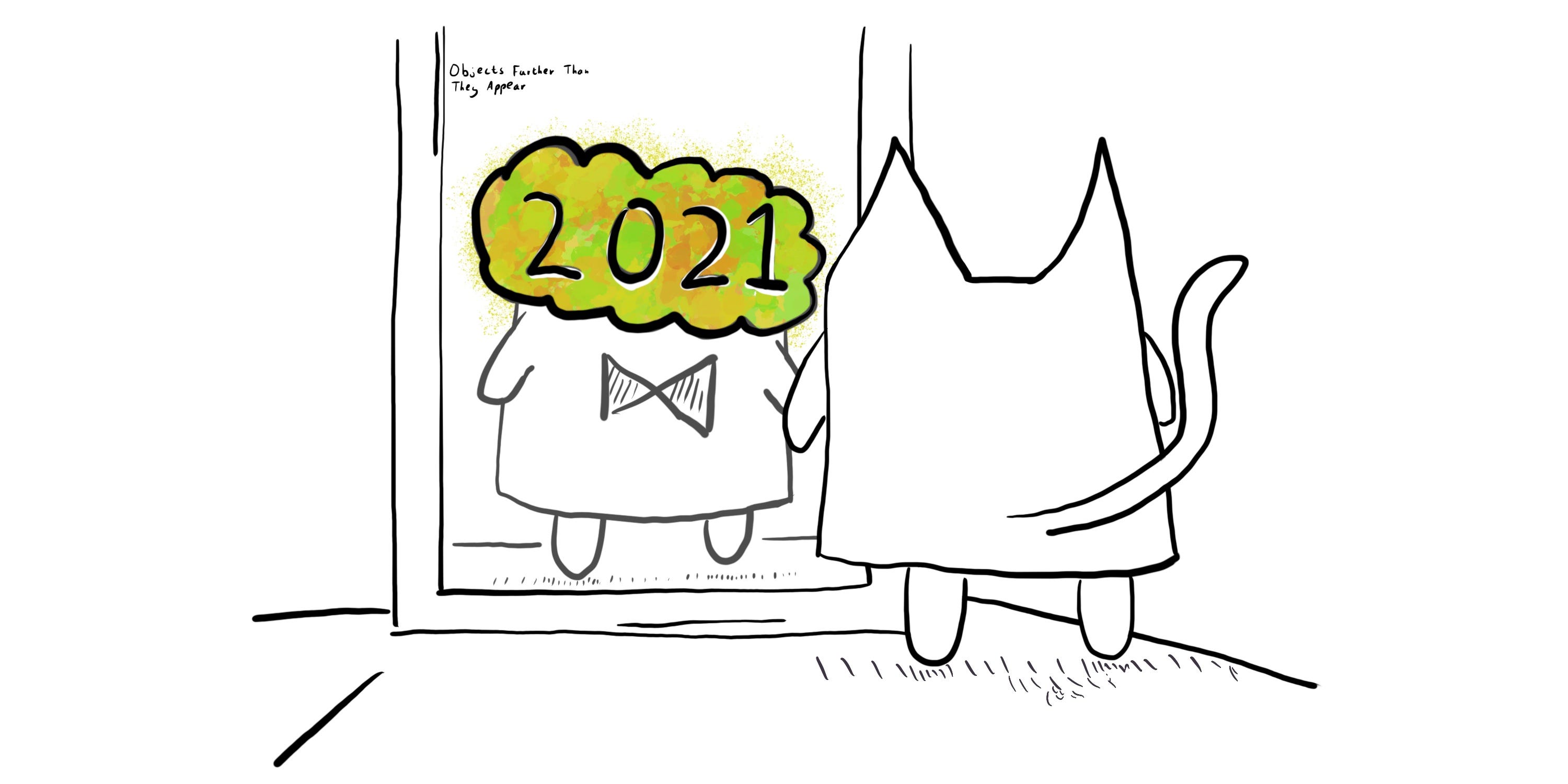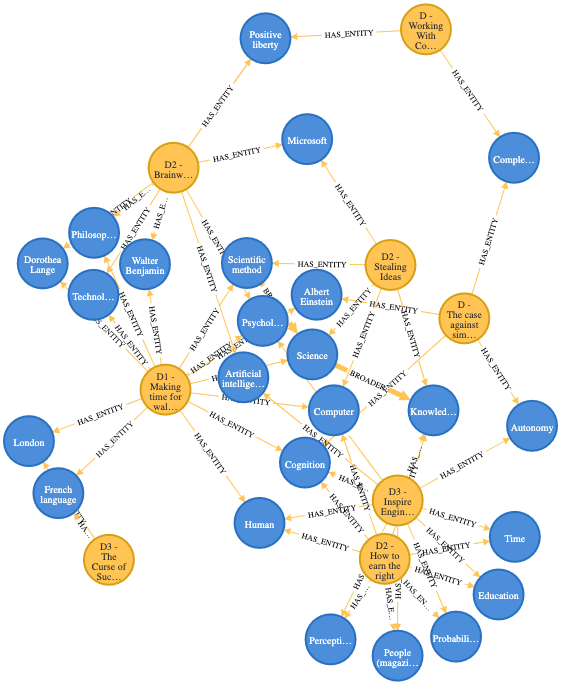
Finding the motivation and skills to navigate any one of the many dominating events of 2021 is something I think we can all relate to.
This article is a summary of the best ideas and thoughts I came across (or copied) in 2021 that have helped me navigate these uncertain times, which I think others would also find helpful.
From complexity management to existentialism — there’s something here for everyone:
On working with complexity and why simplicity is dangerous
- “The more we uncover, the more ignorant we are likely to discover we are — we should be impressed by our level of ignorance”. — Alan Watts
- The pursuit of simplicity only serves to manufacture our consent, not our understanding.
- Accepting something as complicated is an act of humility in recognition of the unknown.
- You don’t need to always understand complexity; you just need the tools to operate within it
- Our attitude to complexity is what determines our autonomy.
- Our principles should be based on enabling other peoples autonomy.
Reading List
The Case Against Simplicity How to Step Out of Disorder A Leader’s Framework for Decision Making Can you make complexity simple Making Sense of Complexity
On leveraging the power of humour
- once you can get people to LAUGH at something…they never take that thing quite as seriously ever again — Henry Bergson
- Comedy can be one of the most powerful tools we have to speak truth to power.
- Laughter acts as a sort of “pressure release valve” that helps us get back to homeostasis.
Reading List
Why Team Names Are Really Not That Important Henri Bergson On Humor No Laughing Matter What the Romans Found Funny
On having better arguments and debates
- “Winning” is a destructive exercise. I argue it is more likely to be counterproductive to your goals of persuasion.
- Rather than testing the limits of people’s integrity, arguments should be an exercise in helping us become our most authentic selves.
- The goal is satisfaction, NOT compromise.
- A well-timed question is primed to help people think differently about an argument.
- “Can I make my opponents argument better than they can?”. If the answer is yes, you have earned your right to argue
- Criticism itself is the engine of intellectual progress
- If you are lucky enough to know that your words carried the weight to influence others, remember this. That in the heat of the moment, your opponent achieved something you could not — a change of mind.
Reading List
How to Earn the Right to Argue A Critical Lens on the Science of Optimal Argumentation The Work Required to Have an Opinion How to have better arguments online
On copying ideas to boost creativity
- The art of mimicking is not one of deception but rather a tool to discover what kind of person a situation requires you to be, and in turn, what kind of person you are.
- “When you ask creative people how they did something, they feel a little guilty”, Steve Jobs once said, “because they didn’t really do it. They just saw something”.
- If there is one golden rule for copying or stealing, it’s probably this: Steal in a way you would like to be stolen from
- You can’t create something really new until we appreciate what rules exist for good reason
- “You have to keep a dozen of your favorite problems constantly present in your mind”, shares physicist Richard Feynman on how to be a genius, “Every time you hear or read a new trick or a new result, test it against each of your twelve problems to see whether it helps. Every once in a while there will be a hit, and people will say: ‘How did they do it? They must be a genius!”
Reading List
Ideas I copied to help steal more ideas When to Copy Ideas, When to Steal Ideas (davnicwil.com) An Artist Explains What “Great Artists Steal” Really Means (lifehacker.com) How to be successful: steal ideas and copy people (web.archive.org)
On the responsibility of communicating ideas properly
- Tools like PowerPoint strip a discussion of important nuance. Complicated problems require more information to make informed decisions than an hour-long presentation can hope to deliver.
- People can read 3 times faster than a regular presenter can speak.
- Stripe found that by getting everyone from engineers to product managers to produce documents, it ensured the best ideas came through, not the loudest voices
- Individuals may be better at thinking creatively, but groups are much better at leveraging criticism and analysis to make those thoughts a successful reality.
- “Good product managers ask the press questions. Bad product managers answer any press question.” — Ben Horowitz, Good Product Manager Bad Product Manager
- What Amazon discovered was team size was not the most crucial factor for determining success. What was essential is having a single, empowered leader who “wakes up and just worries about that thing” — Jeff Wilke, Amazon’s head of consumer business.
- “The best way to fail at inventing something is by making it somebody’s part-time” — Dave Limp, Amazon’s VP of Kindle
- “Focusing on results might be good for short-term performance, but it can be an obstacle to long-term learning”, states psychologist Adam Grant.
- “We end up doing what is defendable rather than what’s right”. — Roger Martin
- Stewardship at its best is when we prioritise getting good outcomes instead of focusing on existing problems.
- “Process saves us from the positivity of our intentions” — Seth Gordon, Director
- Simply receiving a genuine compliment, words of recognition or praise can help us feel more fulfilled, boost self-esteem, improve self-evaluations, and trigger positive emotions, decades of research have shown.
Reading List
‘Working Backwards’ to finally make remote work… work Working Backwards, Book 22 Principles for Great Product Managers What I’ve Learned in 45 Years in the Software Industry
On being more inspiring and persuasive
- “The greatest threat to success is not failure, but boredom” — James Clear, author of Atomic Habits.
- You may consider what your team does as significant, life-changing work, but if the team doesn’t, then what’s the point?
- Whether it’s achieving a milestone or surpassing your targets, we should plan how to quantify the value of success to increase our message’s impact.
- Some studies suggest that being recognised at work not only helps reduce employee burnout, but the very act of practising kindness and giving compliments can actually make us happier and feel life has more meaning.
- “Caring and a sense of purpose evoke better performance than pressure and fear. The idea that only obsessive egomaniacs can produce breakthroughs is nonsense.” — Brian de Haaff, CEO of Aha!
Reading List
How do you inspire your engineering team? Start With Why How Great Leaders Inspire Everyone To Take Action, Book The Best Metric for Your Product Team Actually, Your State Of War Will Not Get Teams To Move Faster (productcoalition.com)
On the crisis of how design impacts society
- The optionally presented to us through smartphones, apps and services can’t help but seize our psychology through the powerful controls it provides.
- “anxiety is the dizziness of freedom.”, Kierkegaard
- For Heidegger, the point is that technology and design has a logic of its own beyond human intention. What it reveals about ourselves and humanity is not always going to be up to us.
- “Art”, Heidegger states, “reveals aspects of the world that are inaccessible to a scientific or technological approach.”
- “the camera is an instrument that teaches people how to see without a camera” — Dorothea Lange
- “the world is immense, so what slice can evoke the whole cake?” — Lincoln Perry, Artist
Reading List
Brainwashed by design Do We Control Tech — Or Does Tech Control Us? (onezero.medium.com) What is this? The case for continually questioning our online experience (systems-souls-society.com) Walter Benjamin Distraction (Philosophise This), YouTube
On the dangers of being successful
- One of the problems with success is that it gives us something to lose.
- “a calm and modest life brings more happiness than the pursuit of success.” — Einstein
- There are just so many more ways to fail than succeed, and failures are just far more interesting, not to mention funny. So why, Cioran would ask, do we make such an effort to run from failure?
- Though failure is something we strive to avoid, sometimes it’s the fear of failure that singe handily promises it. “People waste years of their lives not being willing to waste hours,” to paraphrase Israeli cognitive psychologist Amos Tversky
- “Success breeds complacency.” — Andy Grove
- Our pursuit and maintenance of success becomes the enemy of personal freedom.
Reading List
The curse of success Episode 156 Emil Cioran Part 2 Failure and Suicide, Podcast The Philosopher of Failure Emil Cioran’s Heights of Despair (Los Angeles Review of Books) Is Success the Enemy of Freedom (greaterwrong.com)
On making time for yourself
- Silence isn’t an endgame. It’s a catalyst, an opportunity to discover truer things about the world outside or inside your head. — Diane Cook
- I like nonsense, it wakes up the brain cells. — Dr Seuss
- More than an identity, a creature’s name is also a password — Ferris Jabr
- The trick is not to use complaining to consume our minds but as a tool to provoke curiosity.
- I know when the ideas stop flowing and diminishing returns set in, walking is the only thing I should be doing.
- The point of cognitive walking is that to work, it needs to be pointless.
Reading List
Your Best Creative Work Is Just a Cognitive Walk Away On the Link Between Great Thinking and Obsessive Walking Stanford study finds walking improves creativity (news.stanford.edu) Focused and Diffuse Two Modes of Thinking (Farnam Street)
Hope you enjoyed this. See you all next year!
A good conscience is a continual Christmas. — Benjamin Franklin
BONUS GEEKINESS
A few weeks ago, I booted up a python script to run all my published articles from 2021 through a natural language processor to identify any interesting patterns.

I hoped to identify the main entities that influenced my thinking, then subsequently load those entities into a Neo4J graph database to find the commonalities.
The results were interesting yet, soulless. In the same way that Spotify can tell you your most played songs, it says nothing about what those songs meant to you.
In 2021, ‘Cognition’ was by far the most connected entity node within my graph — which I suppose makes sense.
For the last 2 years, I have been obsessed with cracking the code of becoming more creative, persuasive, more … intelligent. Like gasoline on a bonfire, tools like Obsidian and networks like Farnam Street have only encouraged me to go deeper into unhealthy metacognition.
I still feel there is something interesting here, but I’m not sure what exactly. Hopefully, 2022 will be more enlightening.